➪ see full post: PDF
by Lutz Unterseher, PDA Guest Publication (English translation), February 2025.
In nine concise pages, German military analyst Lutz Unterseher provides the strategic orientation, operational modalities, force allocations, institutional framework, overall personnel requirements for active duty and reserves, command organization, and armament composition of an integrated European Union armed force. He then provides a budget for the component parts. The total annual cost is €170 billion, 1% of EU nations’ GDP.
Unterseher concludes:
It is hardly accidental that the European Union was chosen as the political framework for this force model. Above all, that is because, given Trump-era U.S. policy, NATO in its Atlantic-partnership sense no longer exists.
Whether a self-confident “Euro-NATO” can emerge under American pressure and attempts to sow division remains highly questionable. It does, however, seem wise to “carry over” NATO’s infrastructure and communication networks into the authentically European armed forces wherever possible.
see also: European Armed Forces of Tomorrow: A New Perspective, (printable PDF version) (HTML version) (Leicht gekuerzte deutschsprachige Fassung der Studie) by Lutz Unterseher. English version. PDA Guest Publication, 20 October 2003.


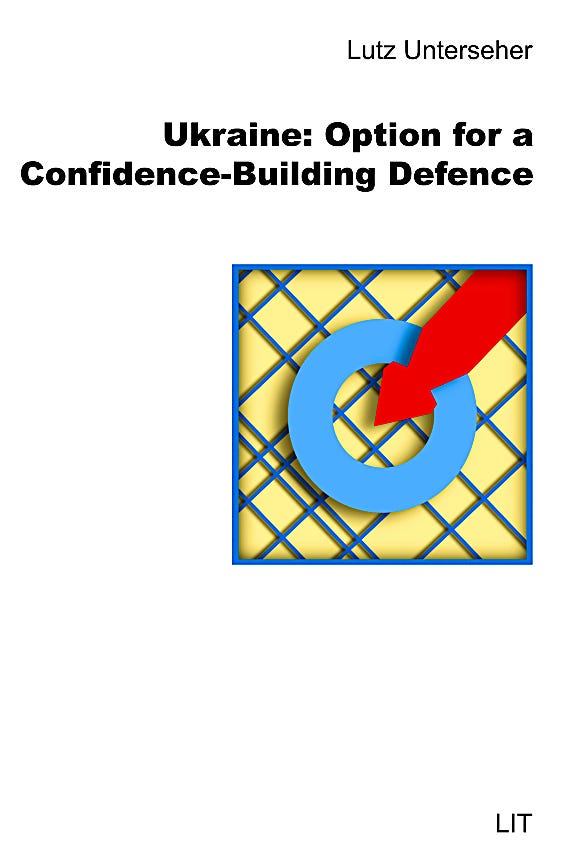
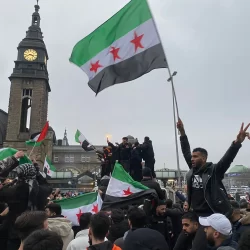 Carl Conetta, 22 January 2025. Full text ⇒
Carl Conetta, 22 January 2025. Full text ⇒  Carl Conetta, 26 Sept 2024. Full text ⇒
Carl Conetta, 26 Sept 2024. Full text ⇒ 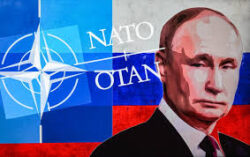
 Carl Conetta, 12 June 2024. Full text ⇒
Carl Conetta, 12 June 2024. Full text ⇒  Carl Conetta, 31 May 2023. Full text ⇒
Carl Conetta, 31 May 2023. Full text ⇒  by Carl Conetta, 30 May 2023.
by Carl Conetta, 30 May 2023. Carl Conetta, 02 May 2023. see article ⇒
Carl Conetta, 02 May 2023. see article ⇒  by Carl Conetta, 02 Feb 2023 – Full report:
by Carl Conetta, 02 Feb 2023 – Full report: 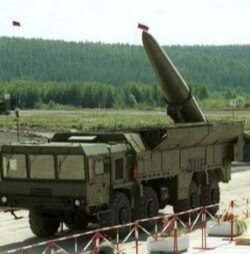 depend on that rationality and restraint? Probably not.
depend on that rationality and restraint? Probably not.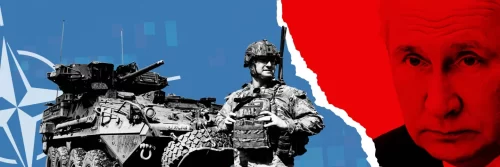
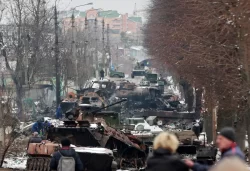 How do the two sides in the Russia-Ukraine conflict compare in terms of personnel and equipment losses? These seemingly objective measures are subject to an intensive propaganda war. This brief analysis examines multiple sources of data to find that the combatants are actually not far apart in the percentage of equipment attrition they have suffered. And Russian personnel fatalities are likely in the range of 3,500 (April 2). Contrary to the messaging of the two sides, both would seem able to sustain combat for a considerable time longer. Unfortunately, as Russian forces have transitioned to a heavier, more firepower-dominant mode of warfare, Ukrainian civilians and civilian infrastructure are suffering more death and destruction. While this might argue for increased emphasis on war containment and diplomatic efforts, the most evocative messaging on the western side emphasizes Russian miscalculation and fumbling, Ukraine’s adept resistance, and the promise of war termination via increased investment in the war.
How do the two sides in the Russia-Ukraine conflict compare in terms of personnel and equipment losses? These seemingly objective measures are subject to an intensive propaganda war. This brief analysis examines multiple sources of data to find that the combatants are actually not far apart in the percentage of equipment attrition they have suffered. And Russian personnel fatalities are likely in the range of 3,500 (April 2). Contrary to the messaging of the two sides, both would seem able to sustain combat for a considerable time longer. Unfortunately, as Russian forces have transitioned to a heavier, more firepower-dominant mode of warfare, Ukrainian civilians and civilian infrastructure are suffering more death and destruction. While this might argue for increased emphasis on war containment and diplomatic efforts, the most evocative messaging on the western side emphasizes Russian miscalculation and fumbling, Ukraine’s adept resistance, and the promise of war termination via increased investment in the war.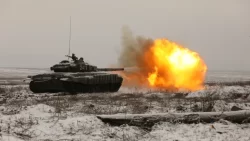 The battle within Ukraine and the USA-Russia contest over it has returned Europe to the darkest, most ominous period of the 1947-1989 Cold War. That this should happen with both the United States and Russia barreling grimly forward reflects a singular failure of diplomacy and common sense. There were two recent points in time when positive leadership might have turned us away from the path of disaster. Fortunately, one of these is not yet foreclosed. The short essay examines them both, asking how did we get here? It concludes with the question: Is it harder to live with autonomy for the Ukrainian rebel areas than it is to face regional war?
The battle within Ukraine and the USA-Russia contest over it has returned Europe to the darkest, most ominous period of the 1947-1989 Cold War. That this should happen with both the United States and Russia barreling grimly forward reflects a singular failure of diplomacy and common sense. There were two recent points in time when positive leadership might have turned us away from the path of disaster. Fortunately, one of these is not yet foreclosed. The short essay examines them both, asking how did we get here? It concludes with the question: Is it harder to live with autonomy for the Ukrainian rebel areas than it is to face regional war?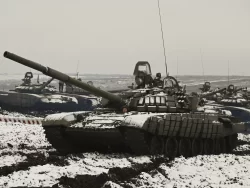 Moscow will act when and if it declares that the West has escalated contention rather than responding positively to its entreaties – principally those regarding NATO expansion and implementation of the Minsk II agreement. Recent US/NATO troop deployments and weapon transfers to Ukraine may already count as relevant escalation. Russian forces surrounding Ukraine stand at an exceptionally high level of readiness and significantly exceed the scale of previous deployments. A full-scale invasion aiming to seize the whole of Ukraine seems unlikely. Indeed, Russian action may involve no more than large-scale conveyance of weapons and munitions to the rebel areas, possibly along with an influx of “volunteers.” Several other options ranging between these two are discussed in the essay.
Moscow will act when and if it declares that the West has escalated contention rather than responding positively to its entreaties – principally those regarding NATO expansion and implementation of the Minsk II agreement. Recent US/NATO troop deployments and weapon transfers to Ukraine may already count as relevant escalation. Russian forces surrounding Ukraine stand at an exceptionally high level of readiness and significantly exceed the scale of previous deployments. A full-scale invasion aiming to seize the whole of Ukraine seems unlikely. Indeed, Russian action may involve no more than large-scale conveyance of weapons and munitions to the rebel areas, possibly along with an influx of “volunteers.” Several other options ranging between these two are discussed in the essay. The basic elements of a solution to the Ukraine crisis are ready at hand – and have been since Feb 2015. These are the provisions of the Minsk II Protocol. This
The basic elements of a solution to the Ukraine crisis are ready at hand – and have been since Feb 2015. These are the provisions of the Minsk II Protocol. This 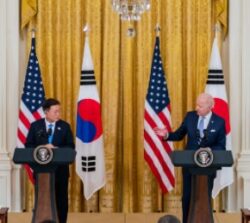
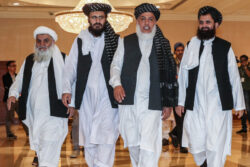

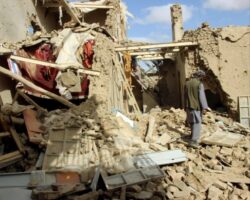

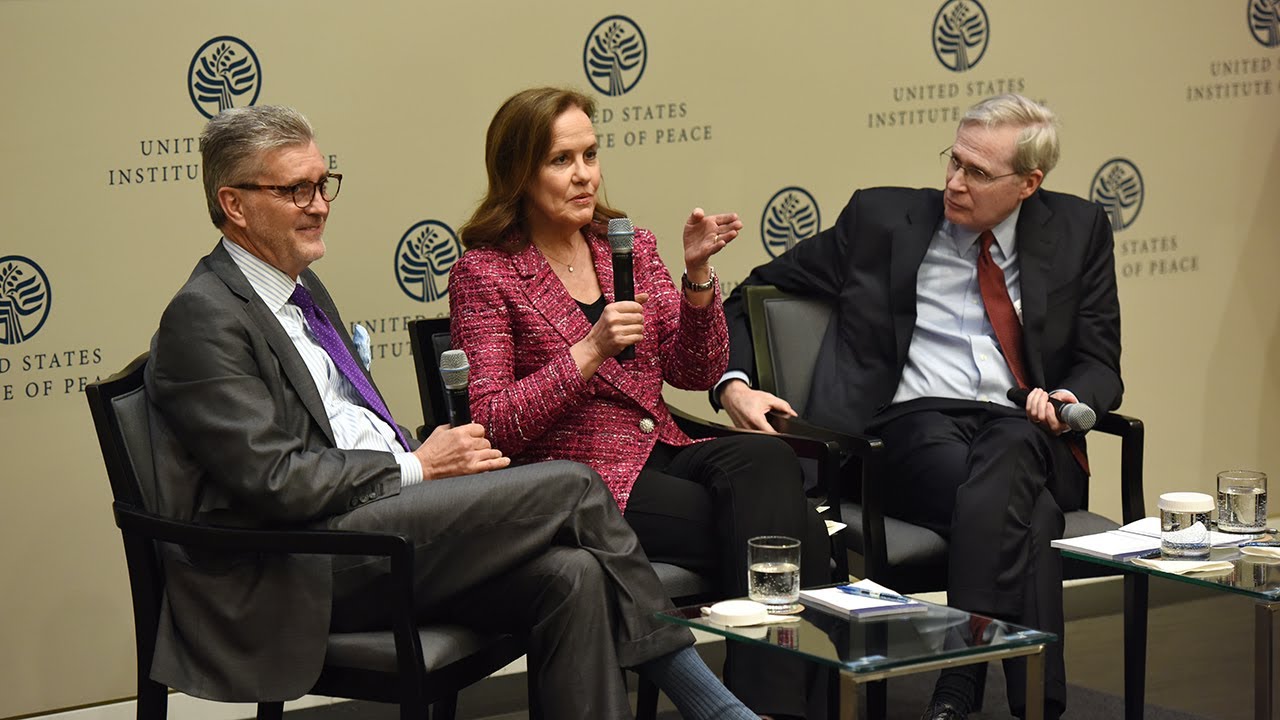
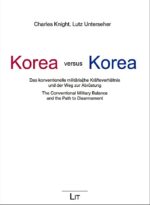
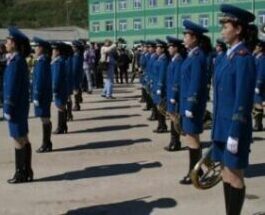
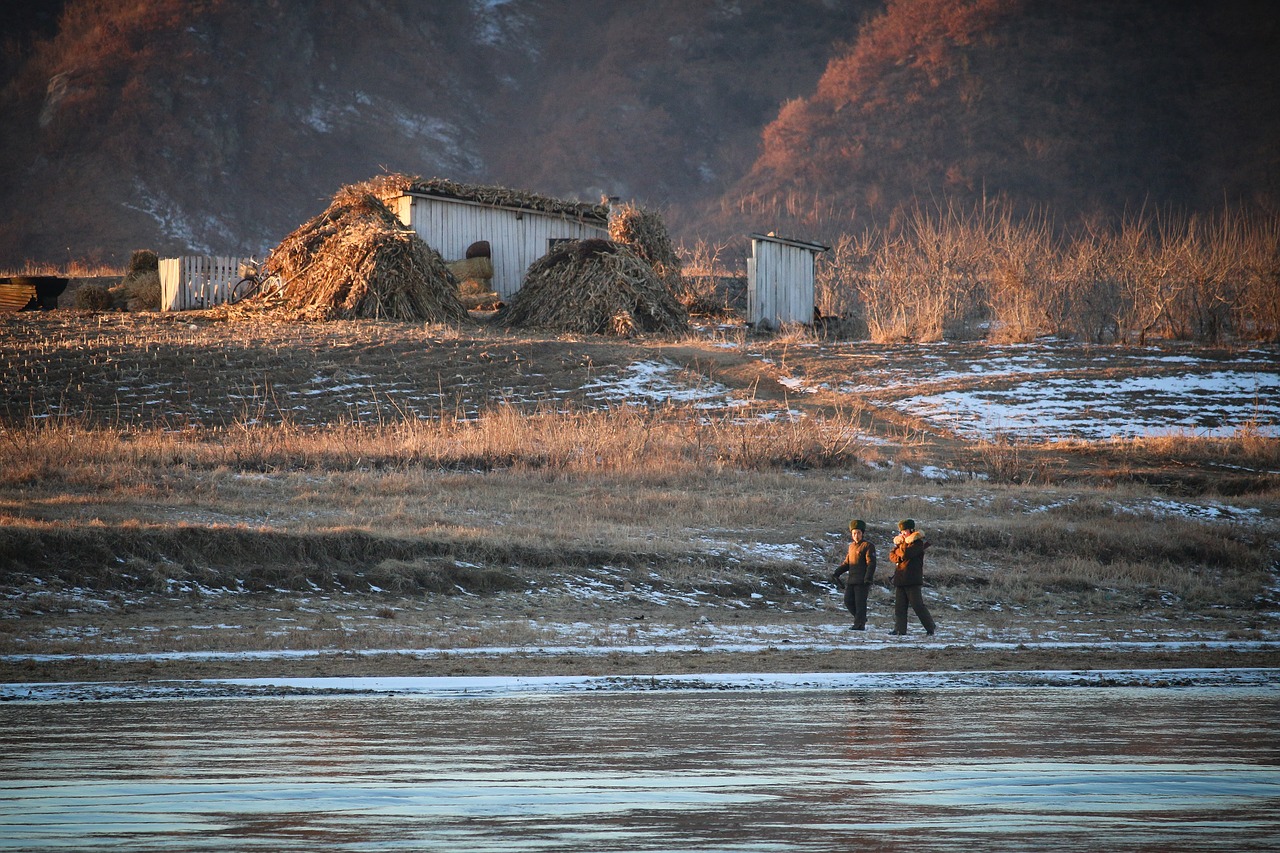
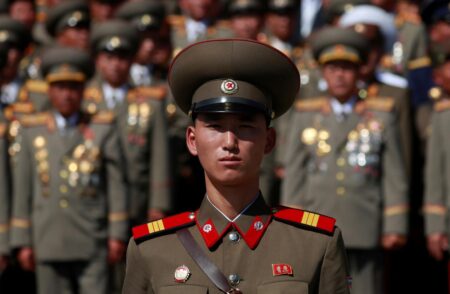
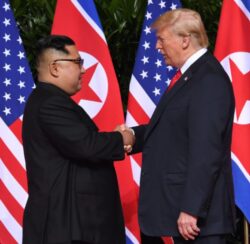
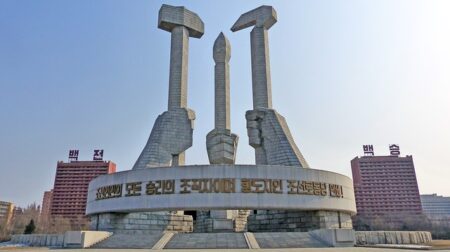
 The April 27, 2018 Inter-Korean Summit was a visibly cordial event. At its conclusion, North and South Korea released a Declaration of Peace, Prosperity, and Unification. This paper reviews a selection of key sections and phrases in ‘The Declaration’ with attention to understanding their implications for the goal declared by both parties of ending ‘division and confrontation’ on the peninsula and for addressing the overhanging issue of denuclearization. Notably, both parties strongly assert their rights as Koreans to take leadership in this task.
The April 27, 2018 Inter-Korean Summit was a visibly cordial event. At its conclusion, North and South Korea released a Declaration of Peace, Prosperity, and Unification. This paper reviews a selection of key sections and phrases in ‘The Declaration’ with attention to understanding their implications for the goal declared by both parties of ending ‘division and confrontation’ on the peninsula and for addressing the overhanging issue of denuclearization. Notably, both parties strongly assert their rights as Koreans to take leadership in this task.